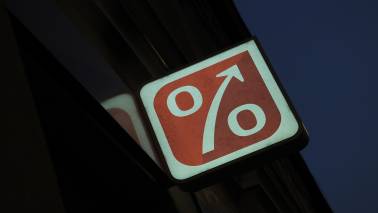Once a celebration for China's lonely hearts, Singles' Day has become an annual 24-hour extravaganza that exceeds the combined sales for Black Friday and Cyber Monday in the United States and acts as a barometer for China's consumers
Chinese e-commerce giant Alibaba saw its Singles' Day sales hit $16 billion by mid-morning on Saturday after racing to a billion dollars in just two minutes after the world's biggest shopping spree opened at midnight.
Once a celebration for China's lonely hearts, Singles' Day has become an annual 24-hour extravaganza that exceeds the combined sales for Black Friday and Cyber Monday in the United States and acts as a barometer for China's consumers.
After a star-studded event in Shanghai late Friday to ring in the event, the volume of goods sold on Alibaba's platforms hit $10 billion in just over an hour and was already heading towards last year's total of $17.7 billion.
The event gets shoppers around China scouting for bargains and loading up their online shopping carts, while delivery men - and robots - are braced for an estimated 1.5 billion parcels expected over the next six days.
"This is a big event for China, for the Chinese economy," Joseph Tsai, Ali Baba's co-founder and vice chairman, said ahead of the sales bonanza. "On Singles' Day, shopping is a sport, it's entertainment."
At Alibaba's Friday night gala, the company's co-founder and chairman, Jack Ma, hosted guests including the actress Nicole Kidman, singer Pharrell Williams and Chinese musicians and film stars such as Zhang Ziyi and Fan Bingbing.
Slower growth?
The excitement around the shopping blitz, however, masks the challenges facing China's online retailers such as Alibaba and JD.com Inc, which are having to spend more to compete for shoppers in a broader economy where growth is slowing.
"A lot of the lower hanging fruit has been picked and there's increased competition for a share of consumer spending," said Matthew Crabbe, Asia Pacific research director at Mintel.
"They're having to spill over out of the purely online realm into the wider consumer market," Crabbe said.
This has sparked deals to buy bricks-and-mortar stores in China, and overseas tie-ups especially in Southeast Asia. Technology, too, has been key, with virtual reality dressing rooms and live fashion shows to attract shoppers to haute couture.
Ben Cavender, Shanghai-based principal at China Market Research Group, noted that brands were being more careful with the deals they have on offer this year to avoid "margins getting killed", and were often asking for deposits in advance.
In previous years, most prices were often halved.
"I think prices seem high and I'm totally lost as to the rules" about discounts, said Gao Wantong, 21, a student in Beijing.
Fu Wenyue, a 23-year-old dresser in Shanghai, said she had spent around 4,000 yuan ($600) on clothes, cosmetics and kitchen utensils in pre-event sales, transactions ahead of the day which officially only go through once midnight strikes.
"I've bought some stuff already, but I haven't finished shopping yet," she said.
(USD 1 = 6.6386 Chinese yuan renminbi)















